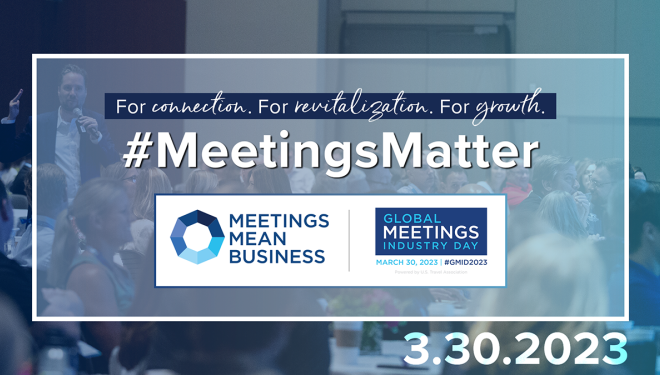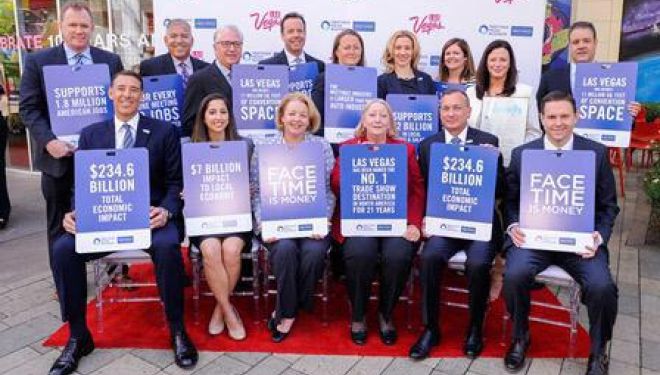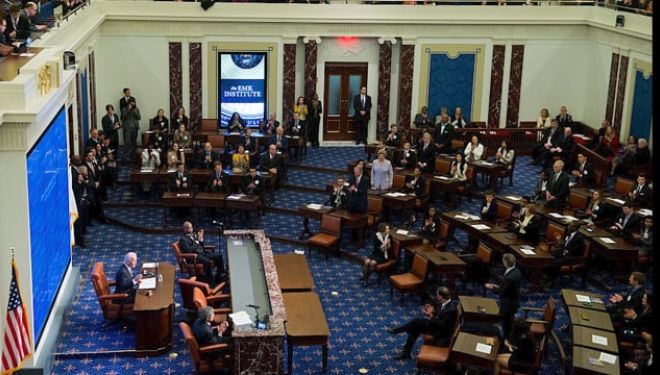Meetings Mean Business Coalition

Meetings Mean Business is an industry-wide coalition working to showcase the undeniable value that business meetings, trade shows, incentive travel, exhibitions, conferences and conventions bring to people, businesses and communities.
Comprised of over 70 members, this group—newly merged under the U.S. Travel umbrella—convenes quarterly and works to raise the profile and importance of meetings and events in the media and in the minds of lawmakers. Amplifying the needs of meetings, events and business travel is critical to not only the overall recovery of travel, but also the growth and standing of our industry into the future.
MMBC participation eligibility:
- Included in membership: Chairman's Circle, Board Circle and Association Board Circle levels
- Eligible for a fee: Sustaining and Pillar levels, plus select friends of travel
View the full coalition roster.

Join us on April 11, 2024 for #GMID2024!
Last year, on March 30, the industry came together to celebrate Global Meetings Industry Day (GMID)—an international day of advocacy showcasing the undeniable value that business meetings, trade shows, incentive travel, exhibitions, conferences and conventions bring to people, businesses and communities.
Save the date: It's never to early to start preparing for future activations! Mark the next GMID date on your calendar:
- April 3, 2025
Meetings Means Business Coalition Leadership
Co-Chairs
Co-Chairs



